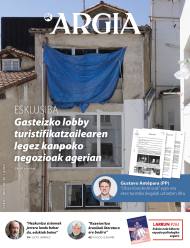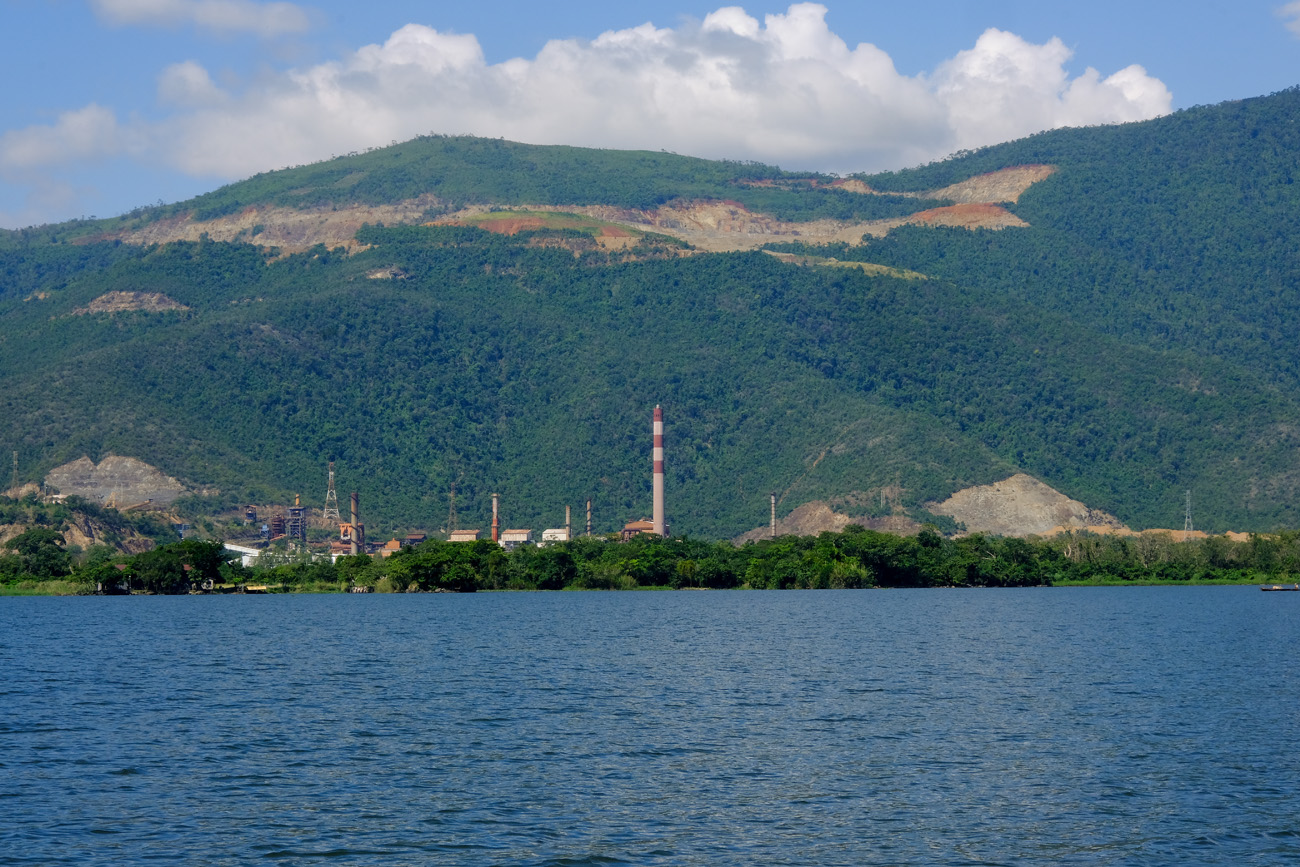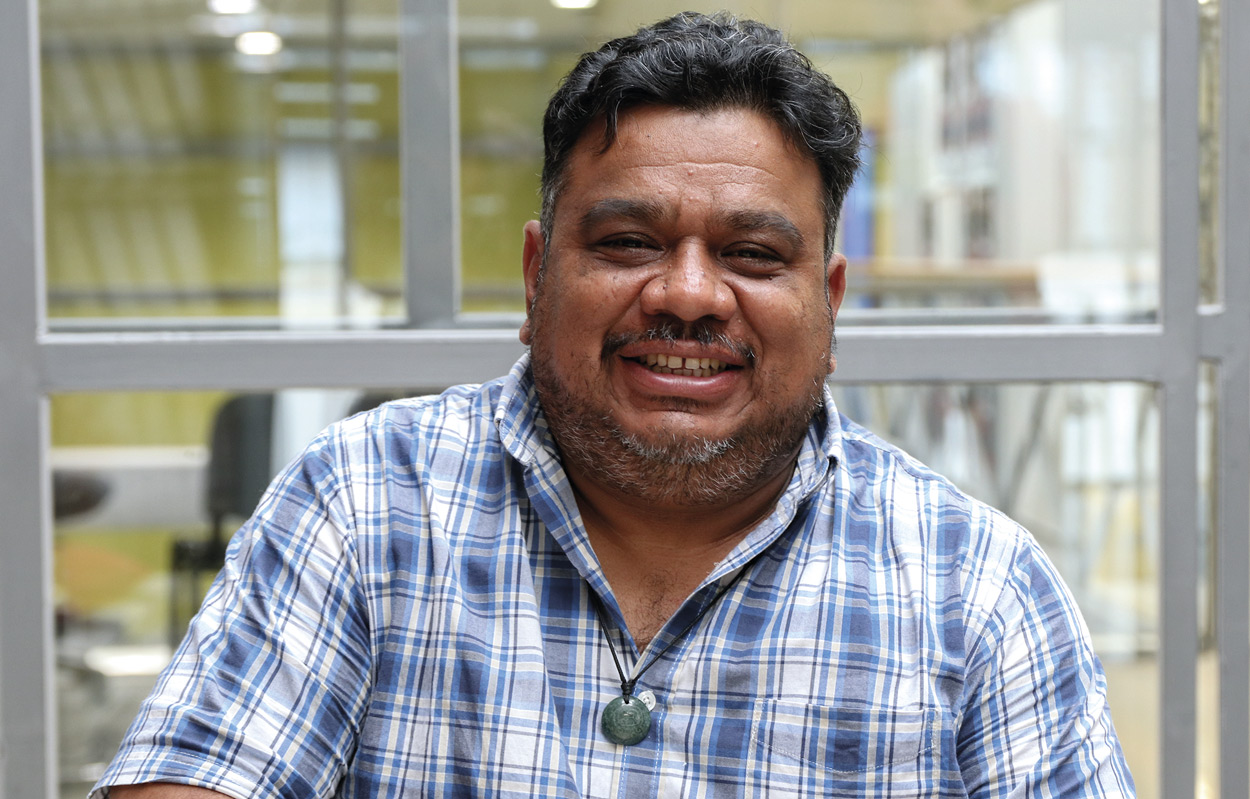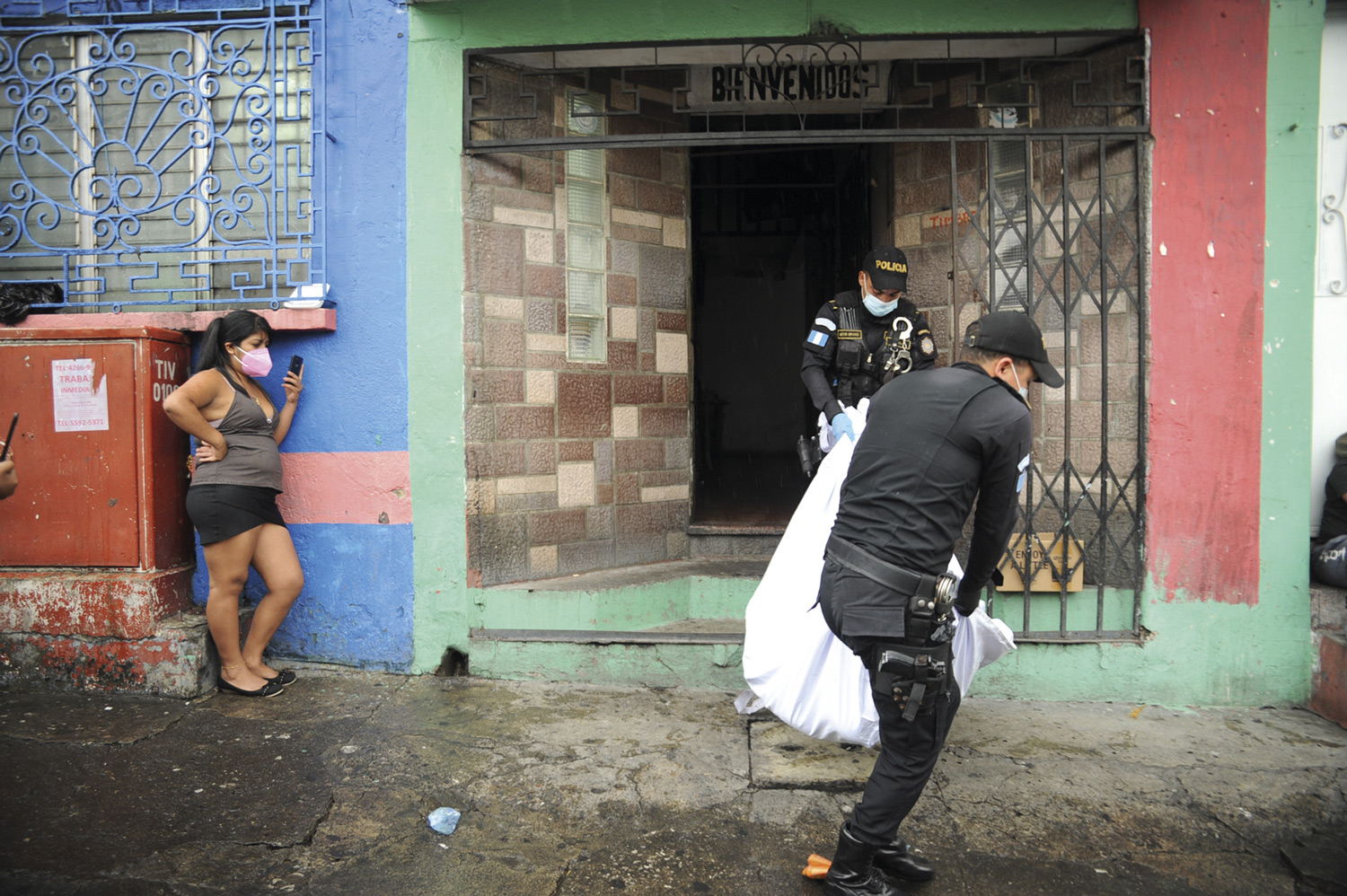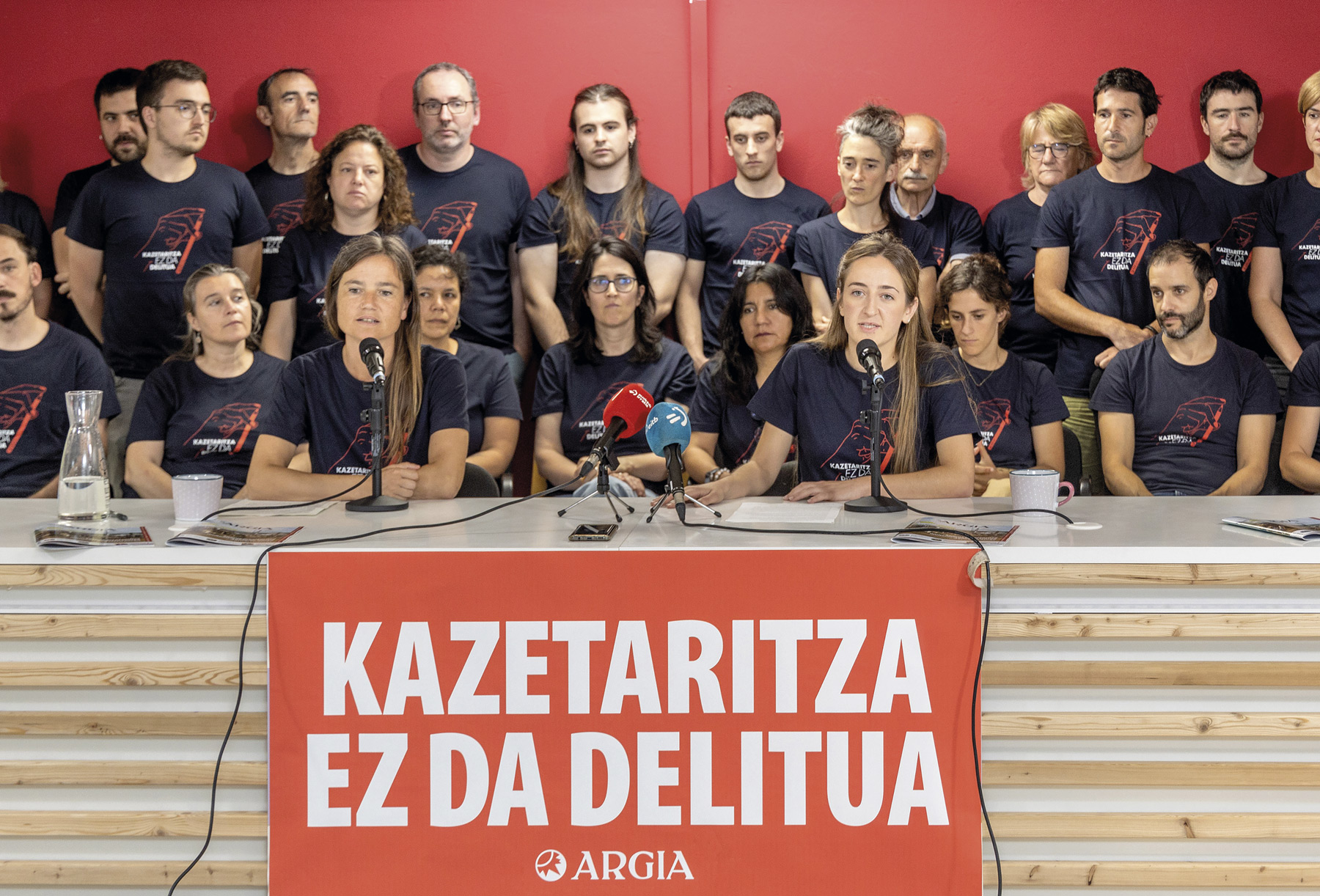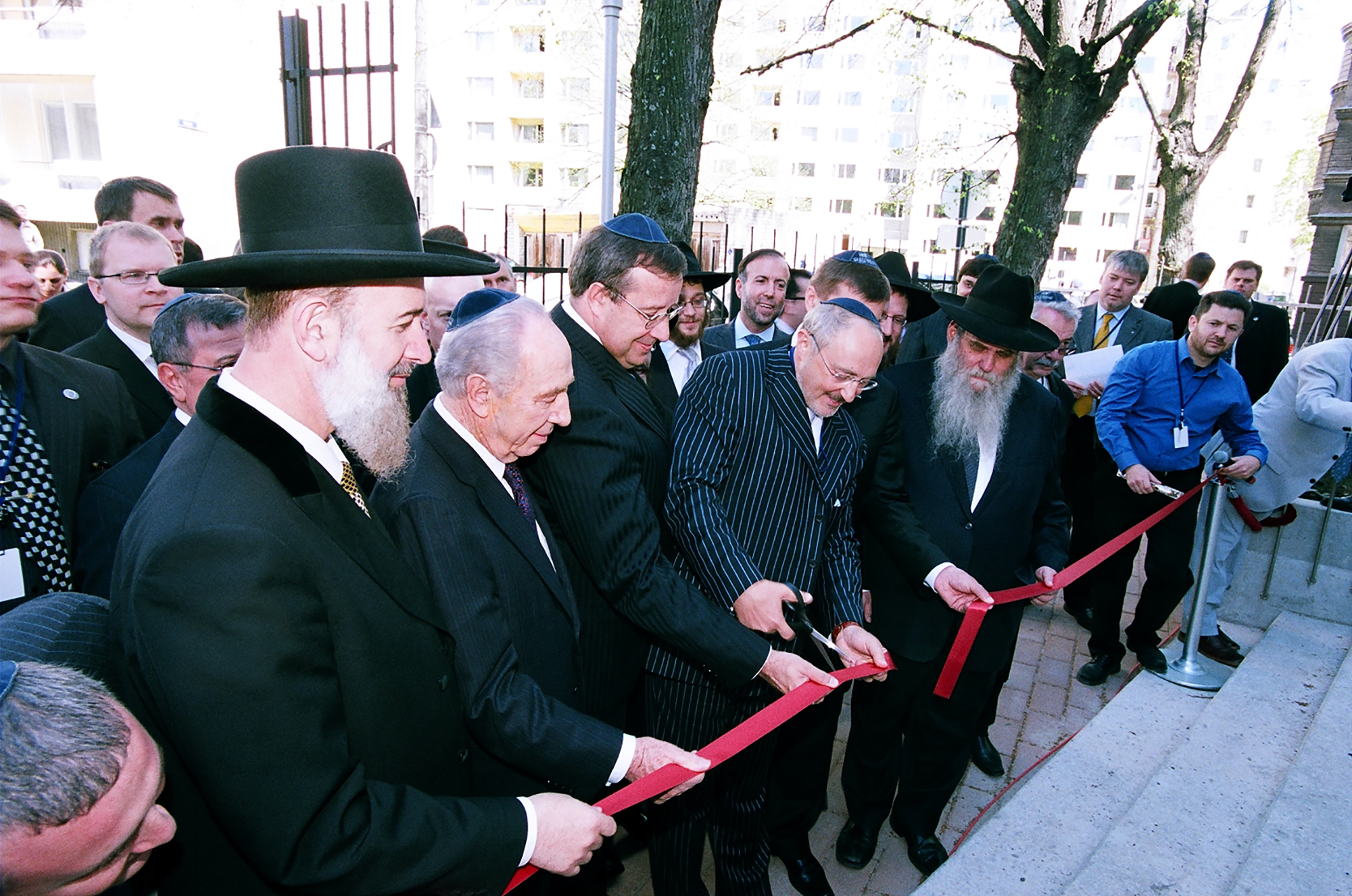"The mining company is acting as a criminal organization"
- Paolina Albani is Guatemalan. He is 33 years old and has been working in Community Press in digital media since 2021. He is immersed in the international Mining Secrets study: Thanks to a leak of 8 million documents, Russian mining that polluted the country’s largest lake and government barbarians have released. Through the NGO Mugarik Gabe comes to the Basque Country to tell the case.

They say that it was created to give a voice to the Community press community, because until then the people of origin had no voice in the media.
In general, journalism in Guatemala is not done from a community perspective. Ours is community because someone from the community does it. All estractivism began to be documented in the Community Press. From there, the project has evolved to do more political things, but always with a focus on indigenous peoples, women and diverse communities. Space is now being opened to discuss this, but very few.
How do you see the media situation in Guatemala?
It's pretty complicated. There is consumption of news today, but there is a lack of investigative journalism and it is necessary in countries where democracy is so weak.
People are not informed in part because having access to research journalism and quality is expensive. On the other hand, I think there is apathy, many citizens are sick of corruption and prefer not to know what the government does behind their backs. They don't know how to steer the discomfort that affects them from the government's theft and impunity to be transformative. There are people who mobilize, but they can hardly change anything. I think we need to add more as a society to put more pressure.
The most powerful means depend on corporations and owners control what is published. They have to do with the government, and you'll almost never see important news about corruption or about citizens killing in communities.
He is part of the international research group Mining Secrets. A year ago, the leaks came to light and they continue to work. What have you investigated about the Solway mining company?
It should be counted chronologically. In 1961, the exploitation of ferronicel [used for the manufacture of stainless steel, among others] began in the mine of the village of El Estor of the department of Izabal, in the maia q’eqchi’ community. The war in Guatemala [1960-1996] was a contract of initiation, in a very specific context, but to date they have continued to exploit it as intended, with total impunity. The Russian company Solway came into play in 2011, when the Canadian companies acquired it until then. Upon arrival, things began to get dark. The land’s Maia q’eqchi’ was against, and the land defenders asked them to leave, but they did not listen to them.
"The leaks claim that the mine has an economic relationship with several Guatemalan governments"
They all broke out in April 2017: The water from Lake Izabal was stained, the largest in Guatemala and the dependent community for being fishermen. It was a foul-smelling stain, like the smell of iron, and the water was reddish orange, very common in its lands, with a lot of iron and nickel. Fishermen who have lived their whole lives and know the territory very well denounced that the mine was the one that polluted the lake. In the following days the fish, as well as manatees and caimans, appear dead.
Community response increased when animals died.
Yes, they got even more acute and decided to organize it: they protested in front of the town hall of El Estor to request the closure of the mine. The population also occupied access to the mine to press, but it ended in tragedy. The police arrived and in that clash killed the fisherman Carlos Maas. It was not just any civilian police, but special, armed and protected forces.
Community Press discovered that there was something bigger there, a structure of power. Public security forces defend outside companies instead of protecting people who manifest peacefully.
They report that they have been criminalized for reporting.
From 2017. One of them was Carlos Choc, from the maia q’eqchi’ community. He told of the murder and persecution of protesters in the coming days. The mines demanded all of them and accused them of serious crimes: inciting them to commit crimes, withholding the mine workers... They have since been criminalized.
In 2019 the Community Press opened a study based on testimonies from citizens. This research became Mining Secrets in 2021 with a filtration of 8 million mining documents. It has served to certify what has been reported so far: that the mine is being polluted and criminalised.
What was the way to criminalize?
In filtration we have found some legal and communicative strategies. Campaigns were conducted to dirty the names of community leaders and went out in the media, supporting the mine. They bought reports to criminalize fishermen and blamed them.
The company was supported by other resources such as the Police and the State. The State has repeatedly established a state of emergency in the territory in order to carry out military interventions and disperse the people.
.jpg)
Community land defenders El Estor say they are persecuted.
We have shown that indigenous leaders fighting for the defense of natural resources were spying, we have found photos, tracking reports... We have seen that intelligence work similar to that of war was being carried out. We discovered that those who were preparing these major intelligence reports were retired military members of the Guatemalan army. That's just a small part. They also committed many atrocities to scare people and leave the mine at peace: burning crops, expelling the population from their lands ...
What is the most noteworthy research information?
The important thing is that the leaks claim that the mine has an economic relationship with several Guatemalan governments. On the one hand, in 2021, before the leak came out, the Public Prosecutor’s Office investigated the president [Alejandro Giammattei] for the bribe, who had received secret money from Russian and Kazakh businessmen in exchange for taking control of one of the country’s largest seaports. Moreover, the reports show that the mining company urged the State to establish a state of emergency, and they did so. The connection is clear.
What was the answer from the research? How does it affect Guatemala?
In Guatemala this has not been the case. There was discomfort, but, as I say, people are already upset. A group of opposition MEPs made a proposal for a law to raise taxes on mines to 40%, now 1% is compulsory, and to cut some mines, among other things. They couldn't get the congress through, so it had no influence.
At the international level we do notice a greater impact. International companies like Ikea or Siemens that were acquiring ferronicel to convert it into stainless steel to Solway started to require studies. Some companies decided to cut the contracts.
Other businessmen traveled to the territory to talk to the members of the mining resistance and clarify the answers Solway had not given him. So far we know that not much has happened, but in November 2022, the US Department of Public Treasury penalized three companies for their connection to the mine. The current accounts were frozen, affecting the territory, decreasing production, dismissal...
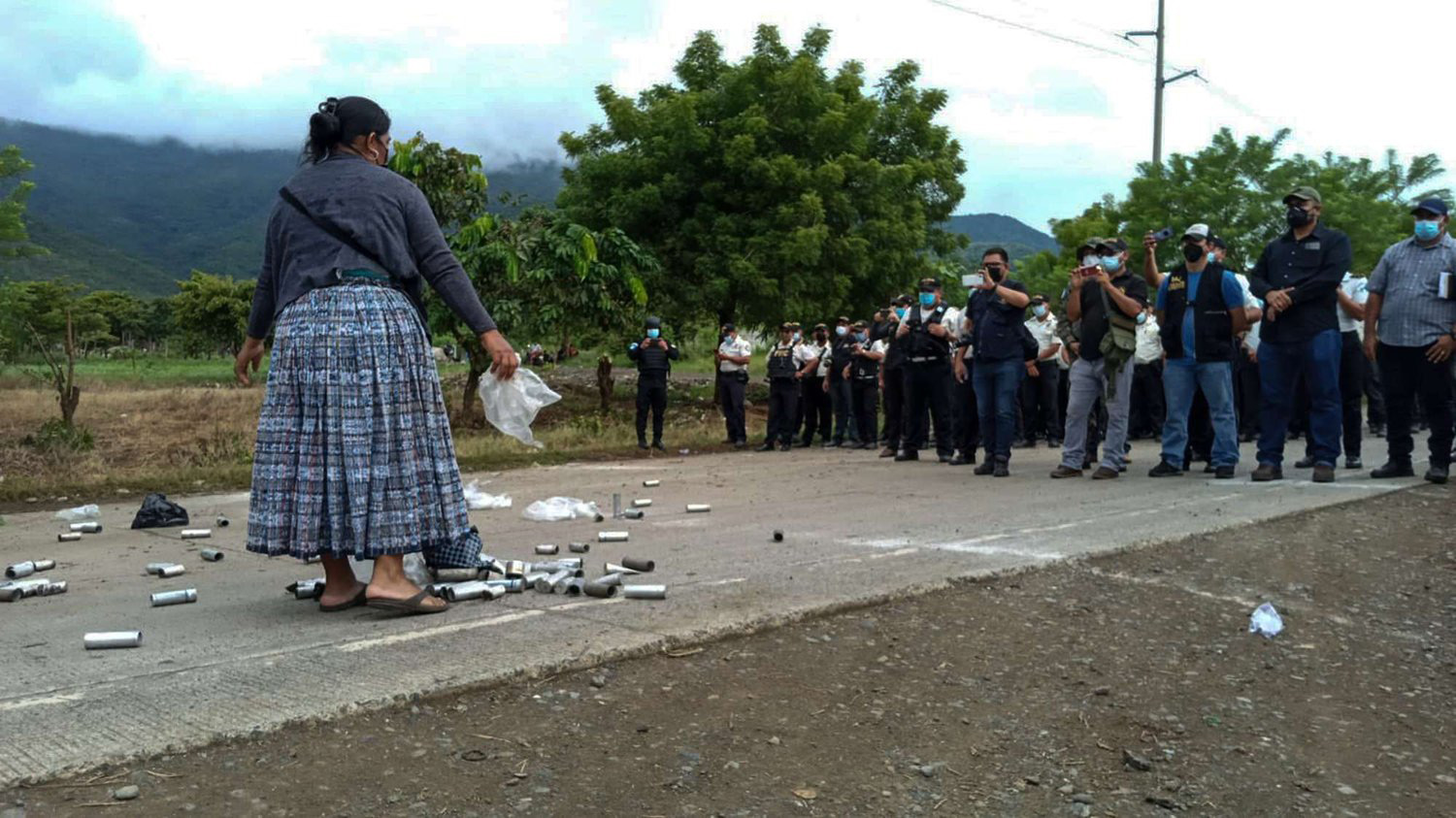
So is Mining Secrets having a positive effect?
So it looks like yes, it's a huge achievement the U.S. response. But we know that the mine is working to stay in the territory; they change the name of the company so that the economic sanction does not affect it. It seems that the mine is closing, but according to the information that comes to us, they have moved elsewhere in El Estor and continue to explode illegally.
The company is used to getting what it wants and is behaving like a criminal organization, as in drug trafficking: when you take your head the organization does not die, you create a new head. That will always be the case, because it is profitable.
Transnational corporations have the support of the government and the military, regardless of who they govern. Is it part of an entire system? What does the Guatemalan oligarchy gain from this?
They have profitable economic agreements and oligarchy is also part of the bribe, an important piece for the functioning of this system. It is no coincidence that the mine tax still stands at 1%, someone has to be behind so that that shameful percentage remains in place. There is a hidden distribution of money, and these dealings with the political elite also help perpetuate an excessive extraction system. The Mines Act remains unchanged, because there is a lobby that wants it to be so.
I think research is a recognition for the people of the territory, because it tests what they were saying. How have you taken it?
Satisfied, because the complaints they have made over all these years have been ratified, but I do not think they have had any sense of tranquillity because the problem persists. You still see cars spiking in the neighborhoods and homes of the resistance members. Panic hasn't gone.
A Western multinational exploits the natural wealth of a territory considered “third world” on a massive scale. Money for the company, pollution for residents and various problems. How many times have we heard this story? On this occasion, however, 65 journalists and... [+]
Martxoaren 8an legearen alde bozkatu zuten, baina presio sozialaren ondorioz martxoaren 15ean artxibatzea erabaki dute. Abortatzeagatik kartzela zigorrak handitu eta eskoletan sexu-aniztasuna irakastea debekatu nahi zuten.









